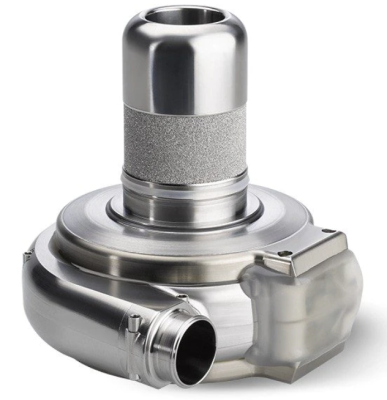
April 28, 2022 — The U.S. Food and Drug Administration (FDA) is alerting healthcare providers to the possibility that patients who have the Medtronic Heartware Ventricular Assist Device (HVAD) System and appear to present with pump thrombosis may have a welding defect in the internal pump causing the pump to malfunction.
This week, Medtronic issued an Urgent Medical Device CorrectionExternal Link Disclaimer to inform health care providers of the pump weld defect. Medtronic is conducting an investigation to identify which HVAD pumps may be affected. The FDA is issuing this letter to health care providers to ensure you are aware of this defect and the recommended actions to take to manage the care of patients currently implanted with a Medtronic HVAD system. As stated in the FDA’s June 2021 communication, the FDA does not recommend the elective removal of properly functioning systems. Decisions about removing or exchanging the Medtronic HVAD System should be made by health care providers and patients on a case-by-case basis, considering the patient’s clinical status and surgical risks.
Recommendations
- Patients who present with one or more of the signs or symptoms of pump thrombosis should be first treated for pump thrombosis.
- If symptoms do not resolve, only then consider whether the patient is a candidate for pump exchange, heart transplant, or pump explant for recovery, considering the patient’s clinical condition and surgical risks.
- If patients have any of the signs and symptoms listed below, immediately submit all .csv logfiles from the controller as described in Medtronic’s Urgent Medical Device CorrectionExternal Link Disclaimer.
- Be aware, the FDA’s recommendations from the June 2021 communication have not changed. Including:
- Follow the instructions provided in the Instructions For Use (IFU) and adhere to current best clinical practices, including strict management of blood pressure and International Normalized Ratio (INR), and the use of system log files to support clinical decision-making related to pump performance.
- Discuss with patients that elective removal of an implanted Medtronic HVAD System is not recommended at this time. In general, the risks associated with explant outweigh the potential benefits.
- Report any adverse events or suspected events experienced with the Medtronic HVAD System through MedWatch, the FDA Safety Information and Adverse Event Reporting program.
Background
The Medtronic HVAD System is a durable left ventricular assist device (LVAD) that includes peripheral components (such as controllers, batteries, AC/DC adapters, carrying case) and was first approved for commercial use in the United States in November 2012. It is approved as a bridge to heart transplantation in patients who are at risk of mortality from end-stage left ventricular heart failure, for heart tissue recovery, and as destination therapy in patients for whom a heart transplant is not planned.
Medtronic received three complaints of patients with suspicion of pump thrombosis where inspection of the returned pumps identified a malfunction of the internal pump in the Medtronic HVAD System. A pump exchange was performed for all three patients, and of these three patients, two patients died after the pump exchange. The three patients involved presented with one or more of the following signs or symptoms:
- Grinding sound
- Transient power spikes on the log files and High Watt alarms
- Elevated lactate dehydrogenase
- Low motor speed resulting in low perfusion
- Dizziness or lightheadedness
FDA Actions
The FDA will continue to work with Medtronic to:
- monitor for any adverse events related to pump weld defects.
- ensure current patients with a Medtronic HVAD implant continue to receive appropriate follow-up monitoring.
The FDA will keep health care providers and the public informed if new or additional information becomes available.
Reporting Problems to the FDA
The FDA encourages health care providers to report any adverse events or suspected adverse events experienced with the Medtronic HVAD System.
- Voluntary reports can be submitted through MedWatch, the FDA Safety Information and Adverse Event Reporting program.
- Device manufacturers and user facilities must comply with the applicable Medical Device Reporting (MDR) regulations.
- Health care personnel employed by facilities that are subject to the FDA's user facility reporting requirements should follow the reporting procedures established by their facilities.
Prompt reporting of adverse events can help the FDA identify and better understand the risks associated with medical devices.
Additional Resources
- Medtronic Patient Information Regarding the HVAD SystemExternal Link Disclaimer
- FDA Communication: Stop New Implants of the Medtronic HVAD System – Letter to Health Care Providers
Contact Information
If you have questions about this letter, contact the Division of Industry and Consumer Education (DICE).


 February 03, 2026
February 03, 2026 









